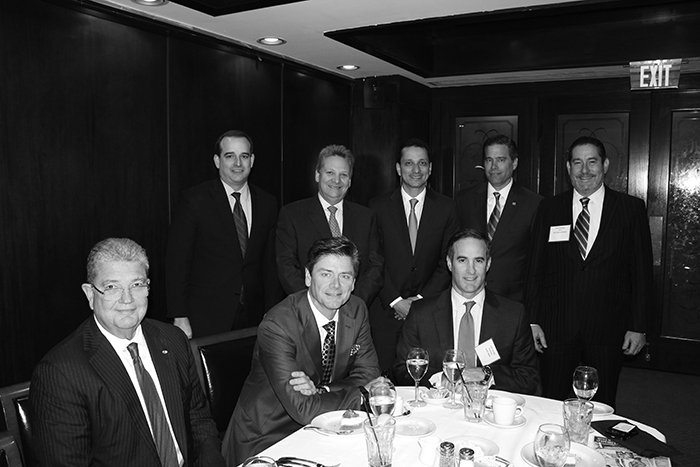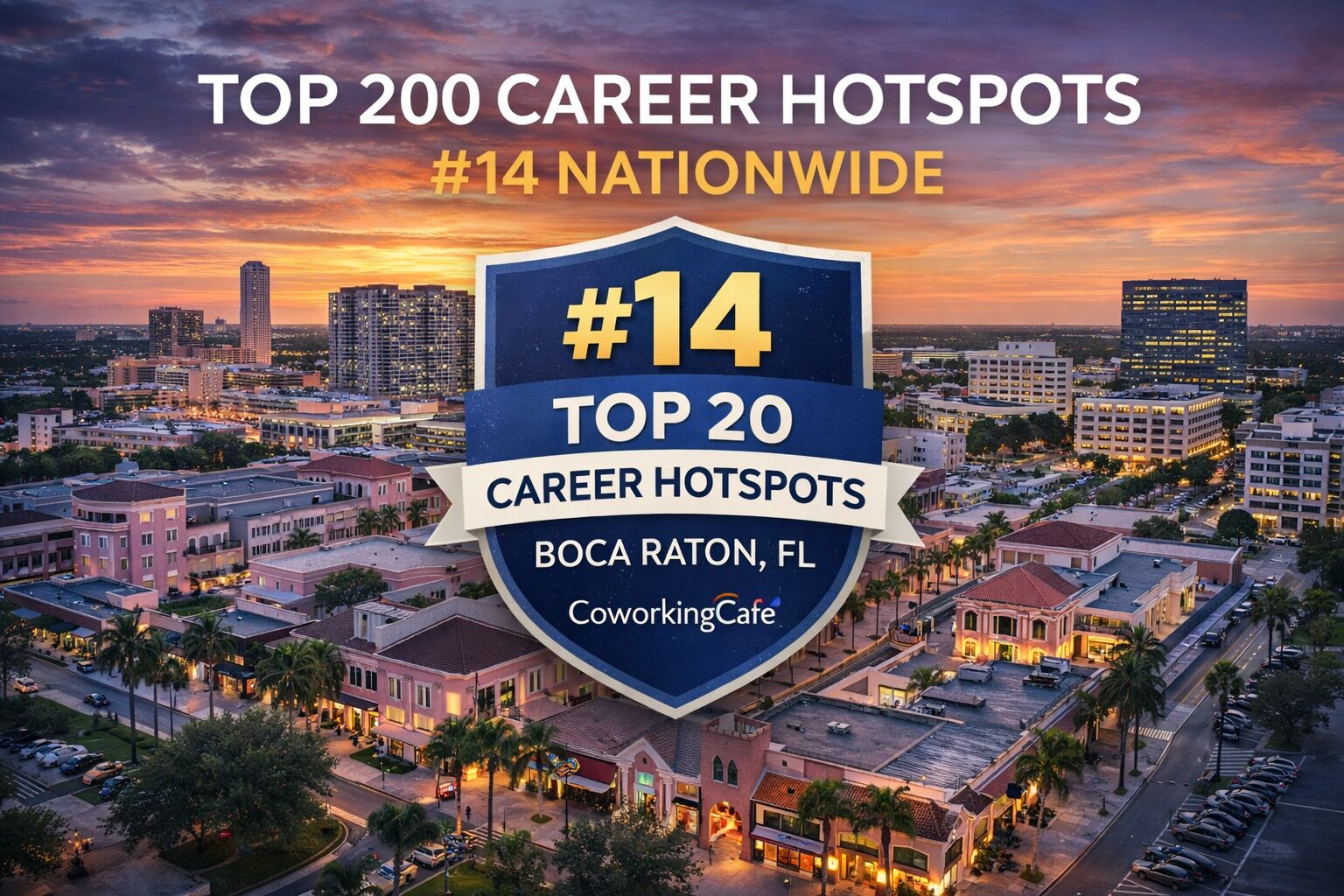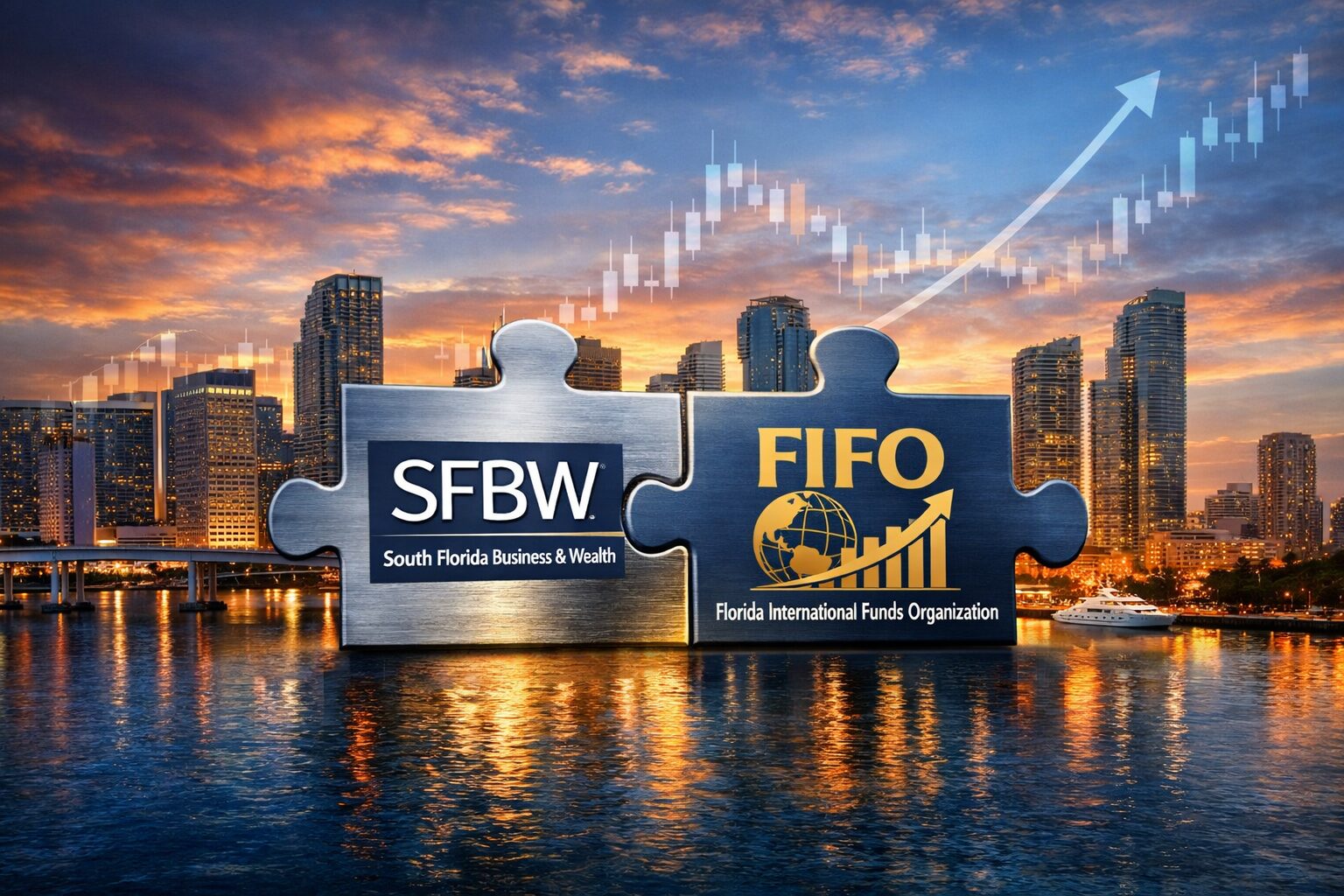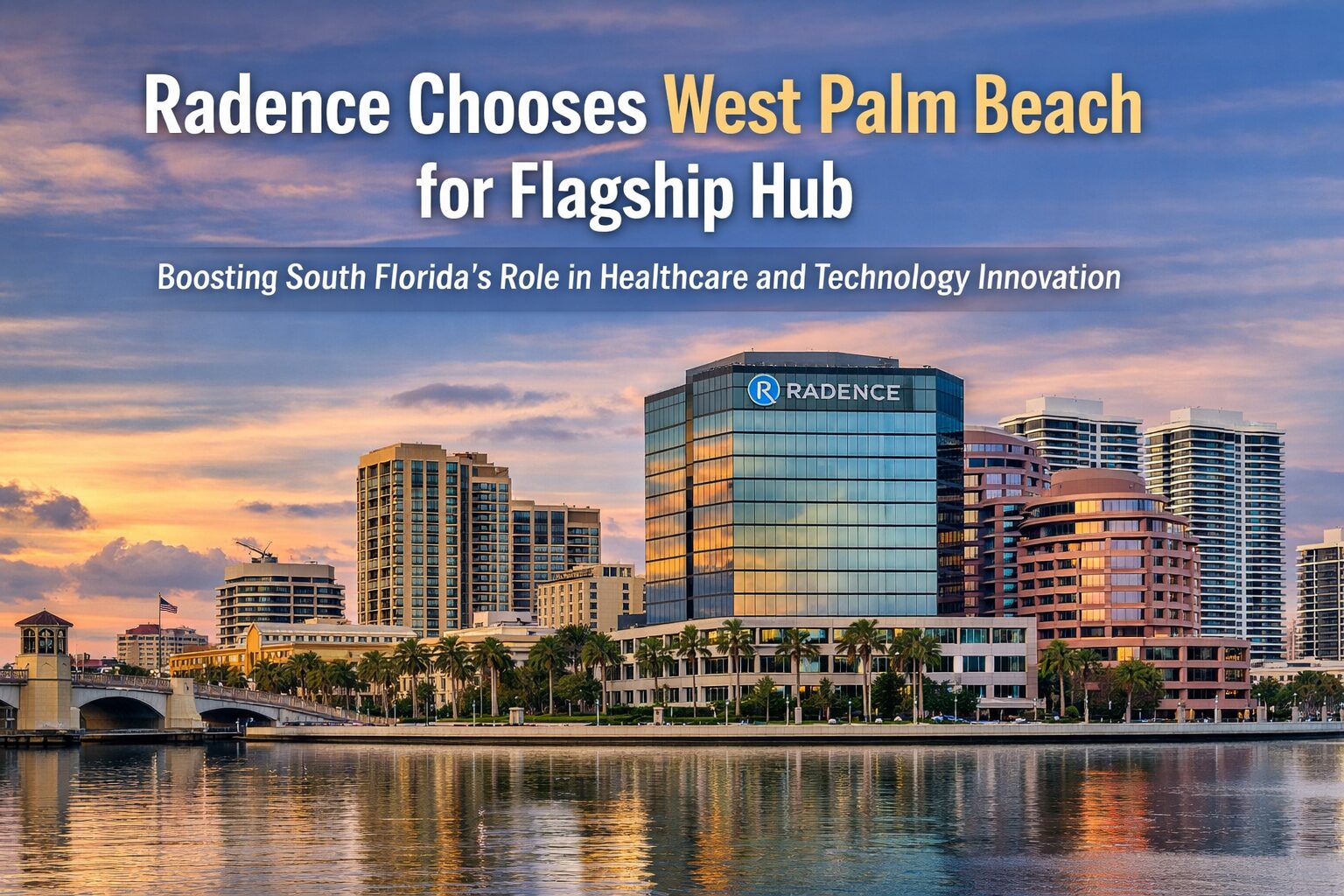Community banks rank with mom and apple pie in the business scene, but the recession dealt a tough blow to many of them.
SFBW assembled a panel of community bank leaders and a few larger banks to gauge the health of the industry. The good news is that community banks in South Florida are getting back on solid footing amid the economic recovery.
One example: A day after our panel, U.S. Century Bank completed the arduous process of getting a $65 million recapitalization approved by regulators. A vote by shareholders was expected shortly afterwards.
Community bankers outlined the difference in this economic cycle compared to previous booms.
The diverse sources of foreign capital flowing into the market has a lot of positives, but there are some potential pitfalls ahead.
Some commercial investors are getting priced out of the market similarly to local purchasers of condominiums. That comes as regulators try to avoid banks being overly concentrated in commercial lending.
Our panel discussion took place at a lunchtime meeting at Morton’s Steakhouse on Brickell Avenue in Miami and was organized by SFBW Associate Publisher Sally Nicholas. SFBW Publisher and Editor-in-Chief Kevin Gale moderated the discussion. What follows is an edited transcript of the conversation.
What is the general state of community banks these days?
Carlos Davila, President and CEO of U.S. Century: I think in general the trends are very positive from a capital point of view and from an asset point of view. I would actually argue in some cases that I see excess capital that should be put to work. That’s in the context of the heavy competition that’s going on. The real estate turning helped a lot in cleaning up a lot of balance sheets and the asset quality is in better shape.
Angel Medina Jr., President of Gibraltar Bank & Trust: Regulatory costs are extremely high whether you are under a regulatory order or not. If you are under a regulatory order, it’s tenfold.
Can we expect more consolidation among community banks?
Davila: Of course, driven by regulatory expenses.
Guillermo Diaz-Rousselot, President and CEO of Continental Bank: I mentioned we have about 250 mergers a year nationally and that is expected to get stronger.
Dan Kushner, CFO of City National Banks: I think the expected number of banks is going down to the 4,000 or under range. It’s below 7,000 now. We were over 8,000 before the crisis – about 8,600.
Diaz-Rousselot: We were at 14,000 in 1984.
What’s the impact on businesses here in South Florida if there is a reduction in community banks?
Davila: There are fewer choices and alternatives for customer. We just finished a strategic plan and looked at the data for the last five years. During the recession, what you saw was the bigger banks in Florida getting stronger – and to a certain extent, during the recession and working our way out of it ” the community banks getting weaker on a comparative basis. It is a scale game, but certainly community banks bring choices to small customers.
Diaz-Rousselot: I think the unfortunate elimination of the competition has made our bank a little bit stronger. We have seen growth that we actually had to hold down over the past few years even during the recession.
Davila: Does that growth come from other community banks that disappeared?
Diaz-Rousselot: Of course, but from my perspective I derive a lot of my business from the larger institutions because they are not servicing the expectations the clients have.
Kushner: On the consolidation issues, one of the things you have to consider is that with many smaller banks, the value of their stocks was very, very much reduced, but now that valuation is coming back. Some of the owners are thinking about exit strategies. There are two basic types of transactions: The purchase of a smaller institution or mergers of equals. Both can have difficulties, such as a merger of equals – what’s the real surviving organization going to be? I think the consolidation will continue in the industry.
How challenging is the regulatory environment?
Stan Rubin, CFO and Executive Vice President of Ocean Bank: Banking has always been a regulated business. Regulations ebb and flow depending on what’s happening. It’s a reaction. It’s never an anticipated issue. The challenging part is when you have a certain regulation that has been written in a matter that it’s leading to more writing or more regulation. That’s still unfolding and we don’t know what that means yet.
Kushner: We have a good relationship with our regulators. We feel we are very transparent and let them know of things going on in real time. But the reality is they are always going to be looking at a certain set of things. And then it’s always then some and then some and then some.
The new thing I think we are going to see this year is cyber security. It’s a black eye for the whole industry when we have these data breaches.
What’s ahead in terms of growth for community banks here?
Diaz-Rousselot: We need to balance organic growth that is within the regulatory acceptance. The regulators are quick to point out there were two basic findings on the cause of failures of banks, which were concentrations of commercial real estate and rapid growth.
We have a good economic market right now for growth, so how do you balance that growth with regulatory acceptance? You have to be watchful and monitor that growth and make sure it is on a very safe and sound ground and that you have all the resources available there for exit strategies.
Davila: I think the opportunity for growth is there, but there is also a lot of liquidity in the system, which is making for an aggressive competitive environment. It’s an important challenge to how you manage growth with good returns and the right asset quality.
Rubin: That’s the big challenge with rates so low and spreads that are so narrow. Most of the community banks made their profits through lending and the spreads. The spreads as low as they are create a big challenge for banks to get the returns for the size of the organization they have. It will pass, but it will take some time.
Eddy Arriola, Chairman, Apollo Bank: You see cranes continue to grow and real estate is booming. That’s wonderful. But for community banks, we have concentration issues where we can’t take advantage of the opportunities even if we want to. We are going to have regulatory restrictions. We have to look at other ways to grow.
How does that affect a developer not having that choice like they had before?
Rubin: There are fewer sources of funds. You do have a lot of developers with a lot of liquidity, too. They are relying on less borrowing and the structure of deals is far stronger because of that. How long will that last as liquidity dries up and peoples” memory fades is a whole another thing. What’s happening is a lot of the financing is not being done local.
Thomas Te Riele, South Florida Market President of TD Bank: There is private money going into a lot of these projects. They are getting deposits up-front in the deals, so it is self-funding.
Rubin: There is also the tradition of the insurance companies, which are doing a lot of lending now. They were hurt, but they are stronger now. They are the ones doing the take outs on the long-term deals.
Can we expect more new community banks in the future or has that era passed?
Chorus of voices: Doubtful. Don’t see that happening.
Arriola: Anybody that wants to start de novo has to bring whatever their seven-year projection of capital needs is. Back in the day, you started with de novo and then at the end of three years raised more capital.
Rubin: The likely model will be that people will pull together the funds and buy the license – buy a small bank – and basically that’s the shell that they are going to work from.
How is the environment for small business lending?
Diaz-Rousselot: Extremely competitive. You have a limited market down here and are looking for those traits that you would desire and past muster with an examiner. Everyone here is after that customer and we are giving out very, very, very competitive rates.
Arriola: The economy has rebounded, but specifically construction and real estate. So if you are trying to diversify your portfolio, the regular small and mid-sized businesses aren’t growing. Those are the ones really faced with transportation and education issues. The hedge fund guys don’t care about Metrorail or buses. They live in $30 million high-rises with waterfront views. But if you have a small business, you are concerned about where my kid is in public school, how do I get to work and how do my employees get to the office. Those are the issues we aren’t addressing.
Rubin: The blue collar workforces and jobs for that and developing skilled people that can do that work is lacking here. The wage disparity in this city, or any disparity in this city, is one of the biggest in the country.
Arriola: Unfortunately, I think we are No. 1 now – and in medical fraud.
Rubin: There is an enormous need for skilled workers in those other fields that round out what you need in a regular urban environment and those are going to be small businesses. It’s a combination of developing people with those skills and then funding them. That’s going to be a big challenge for banks. We are going to compete on the credit criteria we want and many smaller businesses don’t meet our thresholds.
Diaz-Rousselot: I thrive with small business. That’s my niche and we’ve done well.
A speaker at a recent Miami Finance Forum said it’s difficult for tech startups to get funding. Is there a role for community banks to help address this?
Kushner: I think the regulators would really have a field day at a community bank that’s doing tech startups. You talk about startups: There is no business and they are trying to make a business. It’s extremely speculative. Even for angel investors, if they hit two out of 10 they will make money. If we hit two out of 10 we will lose money.
Arriola: They need equity. It’s not our role.
Rubin: It’s all startups, really, it’s not just tech. Startups are not where community banks can play safely.
What is the state of commercial lending these days – what projects do you feel comfortable with and are there some that are difficult to do?
Kushner: I think the last 3.5 years have been very good in this area for commercial lending. I think there are a lot of areas that community banks can lend in, such as supply chain with materials and supplies with all the building going on. I think there are opportunities there. In wholesale institutions there are opportunities. We have one of the biggest port systems for inventory coming from all around the world. There is a lot of activity and opportunity for community banks to participate in some of the lending to these.
What’s the impact of the thaw in relationships with Cuba and what would change if the embargo ends? Is your bank starting to make plans?
Arriola: This is too early to write your article. There is still so much that needs to play out.
Diaz-Rousselot: Invest in warehouses.
There’s continued turmoil in Venezuela, a scandal involving Brazil’s Petrobras and intrigue surrounding the president of Argentina. What does this mean to the flow of money into South Florida?
Angel Medina, President, Gibraltar Private Bank & Trust: Turmoil in South America equals more money in Florida.
Te Rioele: Florida is the safe haven for all those countries.
Diaz-Rousselot: There’s more. It’s a little different from other years. We’ve bumped into this. The human capital is coming that wasn’t there before.
Rubin: It’s not just the countries you name. Other countries in Latin America see the uncertainty on their borders and say they have to be careful too. They’re moving. It’s not just a currency valuation. Even in countries that use the dollar, like Ecuador, Salvador, and Panama, exchange controls can be put in place. People still won’t have more than they need in the country.
Arriola: Money has always flowed here when there is a crisis and we have the most amazing economy in the world. Venezuelan oil money has always come here, but now those talented individuals and entrepreneurs are moving here, buying homes and buying offices and starting businesses. That may not hit us today and we may not be lending money today, but in two, three, four or five years from now we will look back at those well-educated entrepreneurs starting businesses. That’s what happened with Cubans who came over here.
Davila: There’s a lot going on in some of the smaller Central American countries becoming more dollarized. I think over time that will help Miami quite a bit.
I was surprised I was at a conference in Colombia, FELABAN (Federaci�n Latinamerica de Bancos), and the opening speech was between a former Fed governor and the president of Central Bank. I was shocked to hear the alignment that’s occurring in places like Colombia with the economy following the guidelines of the Fed and those countries becoming more dollarized. I was in the Dominican Republic and seeing the same.
Some of these small countries are growing in a nice fashion and become more aligned with the policies of the U.S. I think over time that will be good for South Florida.
Have the political events in Russia and the Ukraine plus lower oil prices had any impact in South Florida?
Davila: Low oil prices are great for business.
Diaz-Rousselot: For every cent they cut, it’s like a billion in taxes is cut – that is considerable.
Rubin: Lower oil prices put more spendable money in people’s pockets, which has shown an impact on the economy.
Guilermo: But, what you think would happen is that it would go in spending. People are keeping it.
Rubin: There is some spending. Then you also have that we are a destination location. It helps tourism it some. But international tourism could face some impact because the dollar is strong.
Diaz-Rousselot: Central banks that are oil producing are hurting.
Rubin: In terms of Russia, South Florida is becoming a safe haven for Russians, too. I live in Aventura and I can see Sunny Isles from my back porch – I can see Russia from my back porch. The flow of funds from Russia is increasing and will continue to increase ” especially, when they know that how many dollars they are getting for the ruble is going down.
Arriola: What worries me is when they raid the piggy bank: I need to sell this condo and move the money back to Venezuela.
Kushner: When they want to monetize it back into cash, it’s not going to make a difference to them if they are getting 80 or 70 percent back. That’s the issue, if there is a mass sell-off of some of these units.
Rubin: I don’t see this happening. In a lot of these countries, when they move money to the U.S., there is no intention to bring it back. They are in there home country because that is where their business there and they are earning their money – If it gets too bad that they can’t do that or their store gets nationalized, they will leave.
Kushner: Buying that condo is the easy thing for them to do. They are coming here. They may not want to live in the condo. They are going to sell it and may not care what they will sell it for. Compared to leaving the money over there to begin with, they are way ahead of the game. If they sell it for 70 cents on the dollar, what is the collateral damage to the other properties in that building? That’s really what the unknown question is.
Rubin: That’s assuming people that are moving their money here, the NRAs (non resident aliens), and are putting 80, 90 percent of their funds in the U.S. in real estate. It has increased, but I don’t think to that amount.
Diaz-Rousselot Guilermo: The difference between now and in the “80s and “90s, is that it was cheap then for the Venezuelans, Brazilians and Argentines to invest in the U.S. Now it’s not.
Medina: One of the things I’m seeing is a lot is the investment aren’t short term, but rather family money looking two or three generations down. I’m willing to buy this commercial property and pay a higher price because I’m not looking to trade. This is really for my grandkids, for my great grand kids. It’s a very long-term strategy.
Davila: On the commercial side, they are paying some cap prices that are unheard of to buy into a property with a Walgreens or Walmart. I don’t know how they are going to get their money out. It’s tough to figure out how you do debt service against that type of loan, because of the prices they are paying. It’s easier to get the money out on the residential side.
Medina: You have loan to deposit ratios of 40 percent and lending to those thing at 10 years at 4 percent and that’s how you make the cash flow.
Diaz-Rousselot: The plan is not to make money, but not to loose it over there.
Have you seen an uptick in your wealth business – longer and more secure? Family offices seem to be growing and doesn’t that impact your business?
Medina: For us on the wealth side, it is very positive.
Arriola: It hurts our bank because we have a good old fashion focus on entrepreneurs – the local customers. It hurt us because the guy who built that Walgreens can no longer buy when it is financed. Foreign investors come in and pay all cash or the debt service is just not there.
Te Riele: We saw a lot of the Canadian guys, because of where the dollar is, come in and want to put money in U.S. real estate. We benefitted from that.
Xavier Martinez, Chief Invest�ment Officer, Coconut Grove Bank: On the wealth side, we have seen a lot of foreigners coming in and establishing more permanent nexus. They are owning long-term investment accounts, but then turning around pledging these account, which creates a lending opportunity on the other side to fund their business locally, which is part of the more human capital permanent nexus.
Rubin: A number of the NRAs won’t be NRAs at some point. They will cross over from being an NRA and being a green card holder.
Martinez: Their children study in U.S. universities. They find jobs and stay.
Are you starting to see more interest in South Florida from Asia?
Kushner: You have the Miami Herald building being sold to a Malaysian company. You have Swire. Then you have the hole in the ground at 15th and Broadway – Capital at Brickell – I think that was acquired by an Asian company.
Rubin: The U.S. compared to a lot of place in Asia with wealth is cheap in some ways. Miami is viewed as an international city and not as expensive as in New York. What we do in Miami is equivalent to Singapore for Asia. The money flows into Singapore for the Pacific Rim.
There was a South Florida Banking Institute event last night where an economist from BBVA Compass spoke. For foreign buyers of condos in South Florida, China was 12th on the list. I didn’t realize it was that high. This is just not pure business investment, it’s people buying places here. I only see it increasing. That’s a good thing.
Davila: I think the major change from this cycle compared with previous cycles is the capital flowing in is more diverse. It was more concentrated in Latin America, Asia and Russia. For the long-term state of the South Florida economy, it’s very positive.
Anything different your banks are doing to meet the needs of wealth clients that you might not have done a few years ago?
Martinez: I think community banks have an advantage that we tend to know our clients very well and tailor wealth strategies for their needs. I think people like to know who the investment person is that actually makes decisions for them. Smaller institutions can position themselves to do that. Local decision making is important – having local investment committees that can hire world class managers, but they don’t have to implement some policy made by some guy in New York who has zero context with our clients.
Diaz-Rousselot: We are also in the midst of a great wealth management transfer from the Baby Boomers into the other generations. It is ripe for the wealth management departments of the world to capitalize on it.
Martinez: You have to understand that those millennials are very different in how they approach wealth and think about things. How technological savvy they are and expectations for you to deliver knowing what their investments are in real time.
Diaz-Rousselot: We started as a small wealth strategy department that has grown and hopefully we can keep capitalizing on that. Services fees are coming down.
Rubin: The wealth management area had been a safe haven for deposits. The expansion into providing wealth management products generally through a broker dealer can be done seamless and appropriate to all the roles. That is something the smaller banks didn’t do as much that is now the emerging trend.
Davila: It is difficult because it means more regulation. It is difficult unless you build a scale and expertise to build an investment business. ?
 Daniel Kushner
Daniel Kushner
CFO
City National Bank
I think the expected number of banks is going down to the 4,000 or under range. It’s below 7,000 now. We were over 8,000 before the crisis – about 8,600.
 Guillermo Diaz-Rousselot
Guillermo Diaz-Rousselot
President & CEO
Continental National Bank
The difference between now and in the “80s and “90s, is that it was cheap then for the Venezuelans, Brazilians and Argentines to invest in the U.S. Now it’s not.
 Eddy Arriola
Eddy Arriola
Chairman
Apollo Bank
Money has always flowed here when there is a crisis and we have the most amazing economy in the world.
 Stan Rubin
Stan Rubin
CFO & Executive Vice President
Ocean Bank
Lower oil prices put more spendable money in people’s pockets, which has shown an impact on the economy.
 Thomas Te Riele
Thomas Te Riele
South Florida Market President
TD Bank
We saw a lot of the Canadian guys, because of where the dollar is, come in and want to put money in U.S. real estate. We benefitted from that.

Xavier Martinez
Chief Investment Officer
Coconut Grove Bank
I think community banks have an advantage that we tend to know our clients very well and tailor wealth strategies for their needs.

Angel Medina Jr.
President Gibraltar Private
Bank & Trust
Regulatory costs are extremely high whether you are under a regulator order or not. If you are under a regulatory order, it’s tenfold.

Carlos J. Davila
President & CEO
U.S. Century Bank
There’s a lot going on in some of the smaller Central American countries becoming more dollarized. I think over time that will help Miami quite a bit.














